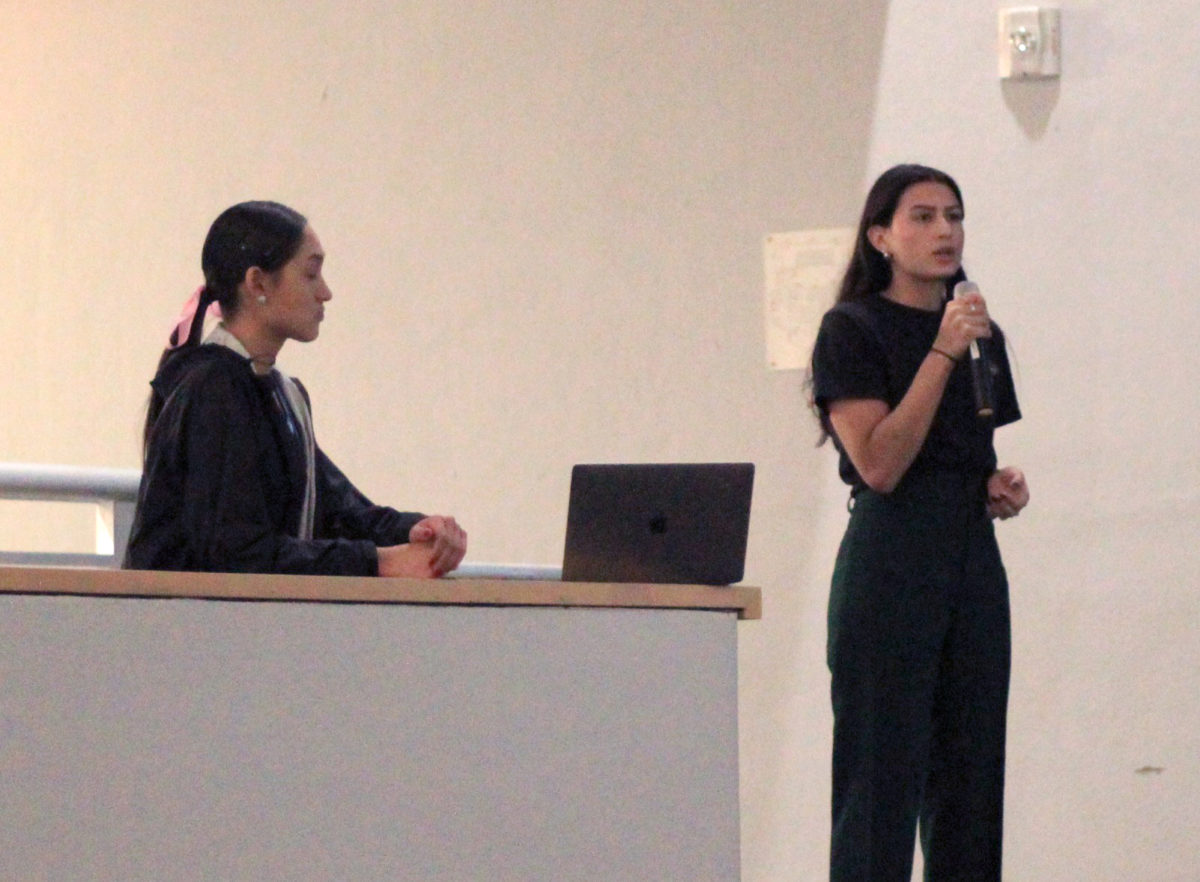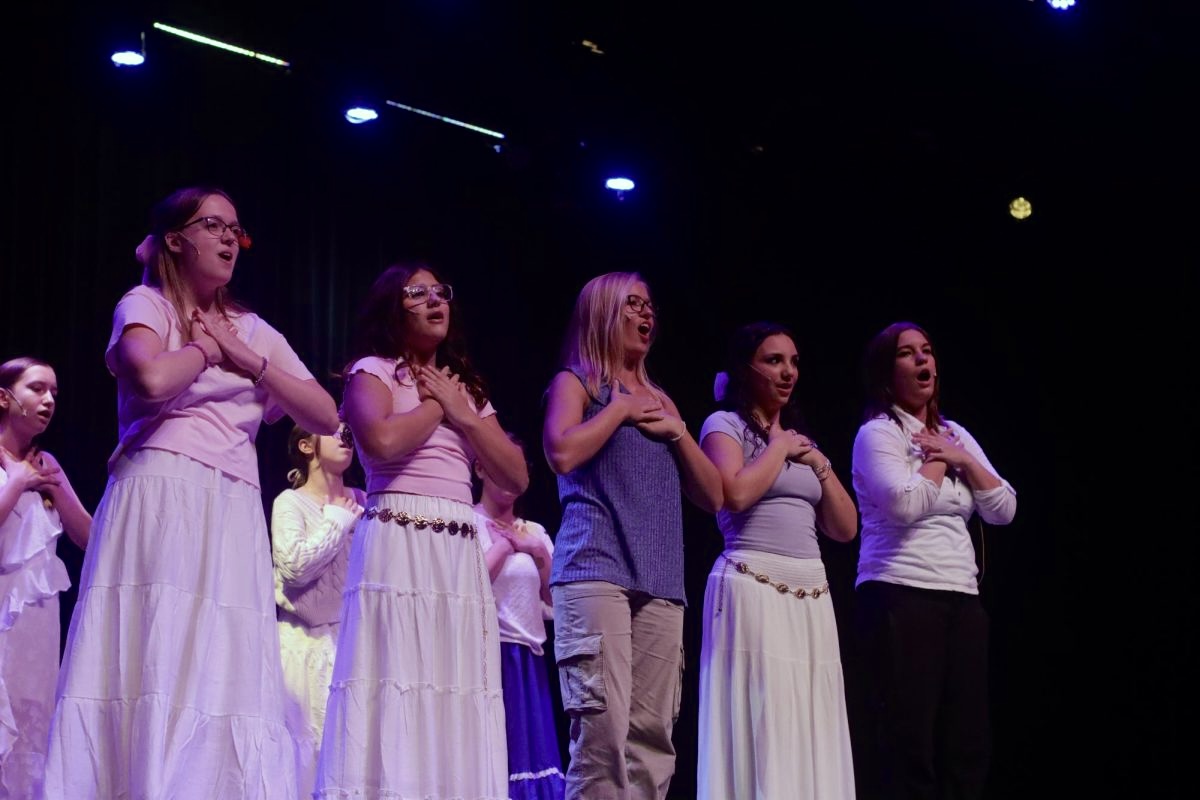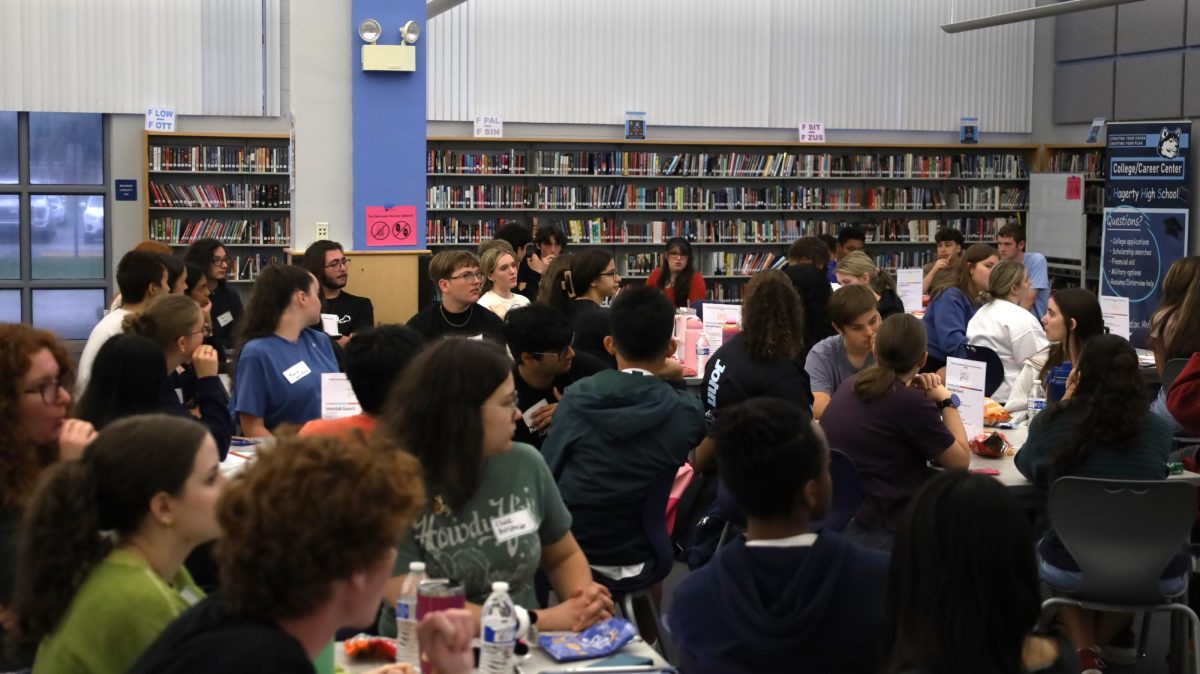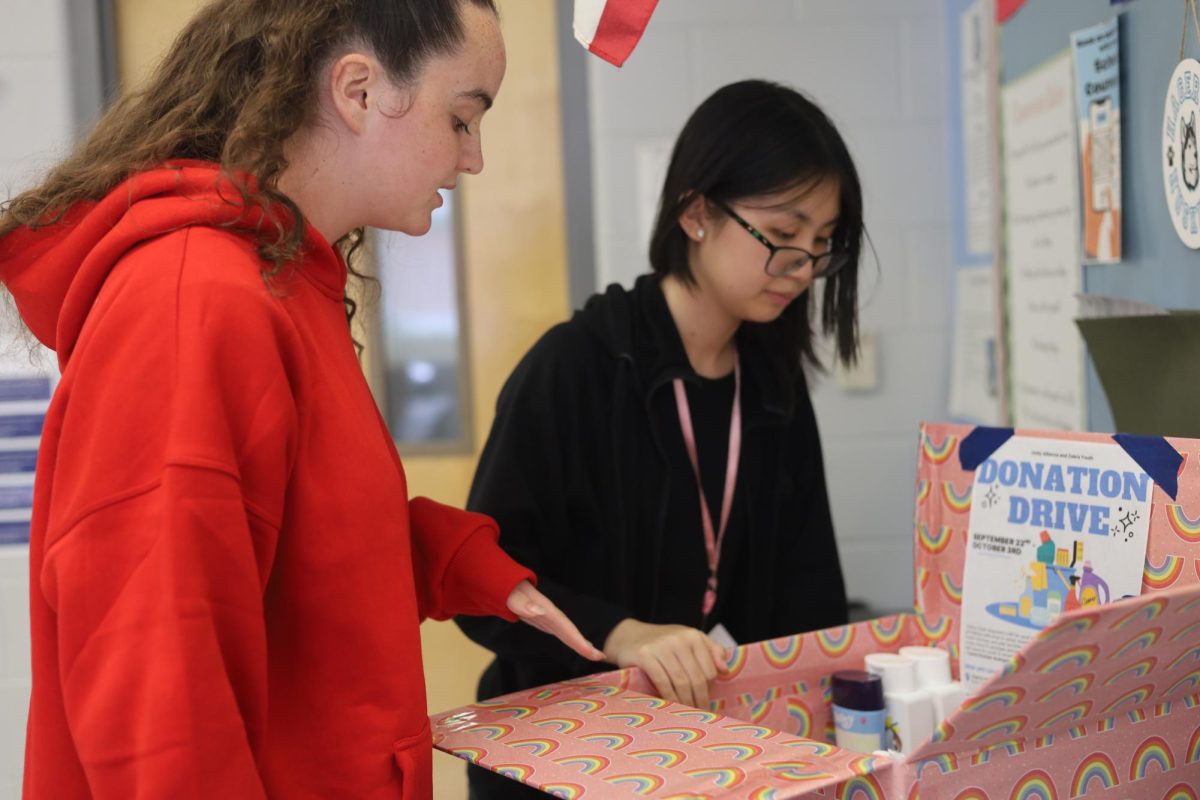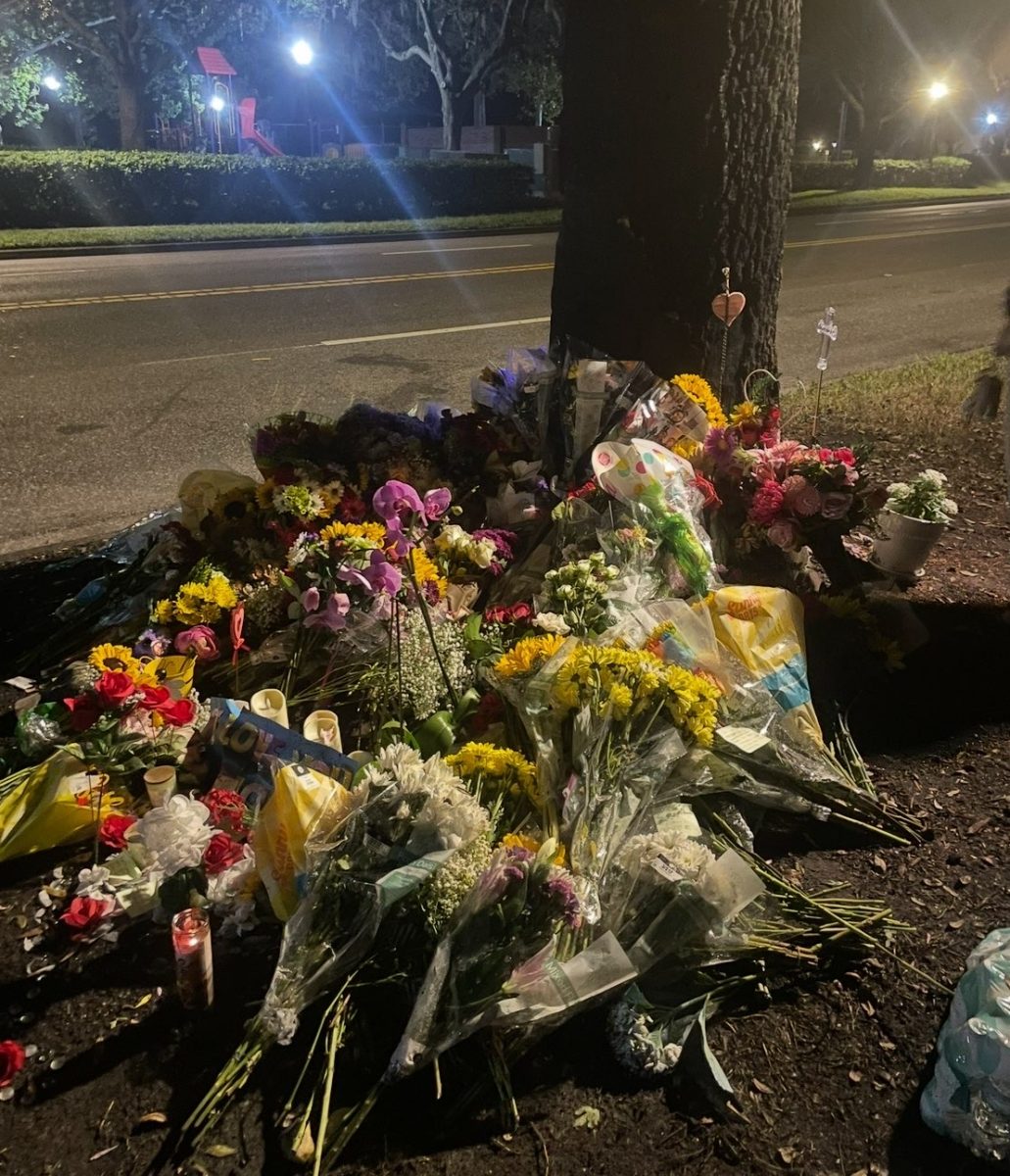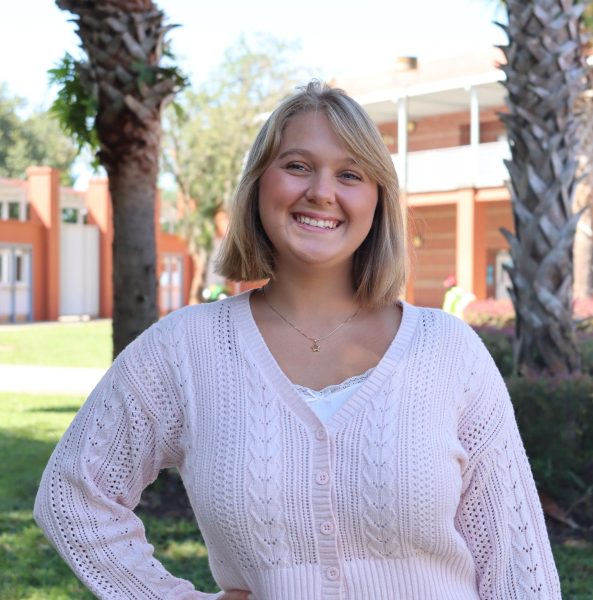On Oct. 6, the Science National Honor Society hosted a guest speaker from UCF’s Exolith Labs, a company at the forefront of space exploration and research. Karina Soto, a psychology graduate with a focus on Industrial Organizational psychology, shared a presentation describing Exolith Lab’s mission and current groundbreaking projects.
Soto discussed some of the exciting projects currently underway at Exolith Labs. She highlighted a project called “RIDER,” which explores the relationship between a rover’s wheel and lunar dirt simulant to prevent the formation of dust storms on the moon. Another exciting project is the current construction of the world’s largest regolith bin, a massive container filled with lunar highlands simulant that is used to test rovers under lunar conditions. Once it’s complete, Exolith Labs will host a robotics competition for people to test their rovers on the simulant.
“Everyone has ideas and those people won’t be able to bring out those ideas unless they’re in a really high position,” Soto said. “We want to facilitate space exploration by providing researchers and students around the world with our simulants.”
Exolith Lab’s currently sells dust and dirt simulants from the Moon and Mars to expand space exploration. The regolith layer that the simulants replicate can be harmful to human health, so testing this product helps prepare humans and space hardware for these hazards. By making these materials widely accessible, Exolith Labs is launching us closer to the possible future of living on the Moon or Mars.
“We want to have [this younger generation] come in and rebrand everything–we want them to understand that people get stressed and people have mental illnesses and that can always range to people on the spectrum and we want to build awareness of that,” Soto said. “I was able to pursue workshops where I was able to implement diversity, equity and inclusion, which is something that’s really important that needs to be important in the space industry.”
Exolith Labs strives to make space exploration accessible for everyone, not just scientists and researchers. The company actively involves volunteers, including high school students, to provide hands-on learning experiences. These opportunities not only expose students to space research but also encourage them to explore potential STEM careers.
“[Student volunteers] do come in to explore their careers, getting that foot in the door seeing if they really want to be in the space industry, and I think you get a lot of hands-on learning,” Soto said. “We definitely try to push [for them] to get internships after graduation and sometimes even internships before.”
Soto encourages everyone to sign up for Exolith Lab’s volunteer program even if they are not explicitly looking for a career in space exploration or are intimidated by the idea of it.
“Most people see working in the science field as really hard or thay you need to be extremely smart. And honestly, I don’t agree with that. We are all undergraduates. We just had an idea. We wanted to create our ideas physically and with the amount of support and love from everyone else around us, we were able to make things happen,” Soto said. “You don’t need to be the smartest person in the world, it’s more about creativity and loving the things that you do. Take a shot, don’t overlook it. Don’t let people that are above you make you feel like you’re not good enough.”

